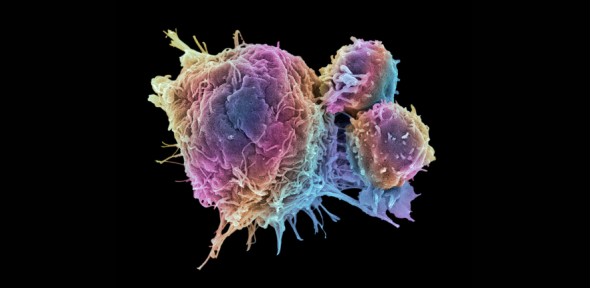
Submitted by Sophie Milbourne on Thu, 02/05/2024 - 13:29
Multiple myeloma is a type of bone marrow cancer which impacts a type of white blood cell called plasma cells, which are essential for the production of antibodies. Myeloma remains incurable but a treatment called CAR-T cell therapy - a type of cancer immunotherapy - could be a promising new avenue for treatment, if researchers can find ways to overcome the 'off-target' toxicity problem.
The Chapman lab at the MRC Toxicology Unit have developed a new computational approach to target multiple myeloma with immunotherapy to minimise off-target toxicity using Logic Gated CAR-T cells. This builds upon their previous work which fully characterised and quantified Multiple Myeloma cell surface proteome.
They have developed this into a user-friendly web application to help other scientists develop NOT gated CAR-T cells against myeloma which can be found here: https://chapman-lab.shinyapps.io/NOTATER
'Targeting myeloma essential genes using NOT gated CAR T-cells, a computational approach' was published in the journal Leukaemia on 30th April 2024. Read the full publication here.
More about CAR-T cell therapy
CAR-T cell therapy is a type of cancer immunotherapy that could be considered "game-changing".
Our bodies are host to an army of immune cells that patrol our bloodstream protecting us from infection. A large part of this army consists of T cells. These are responsible for identifying and destroying cells that might pose a threat. However, cancer cells can often go under their radar, remain undetected allowing them to grow uncontrollably.
CAR-T cell therapy provides a way to overcome this problem. It uses a patient's own T cells and turns them into essentially highly skilled cancer cell assassins. Scientists can do this by reprogramming the T cells so they carry a specific protein called chimeric antigen receptor (CAR) on their surface which recognises cancer cells.
T cells have thousands of proteins present on their surface already (their so-called surface proteome). If researchers can combine one or more of these surface proteins with CAR so there are multiple targets that T cells can use to detect specific cancer cells, it is likely to improve the outcomes of this kind of treatment. But this solution brings with it an additional challenge. These so-called 'combination therapies' tend to have 'off-target' effects and can remove, in the case of myeloma, normal blood cells in addition to the cancer cells, but also impact healthy cells in other organs too.

